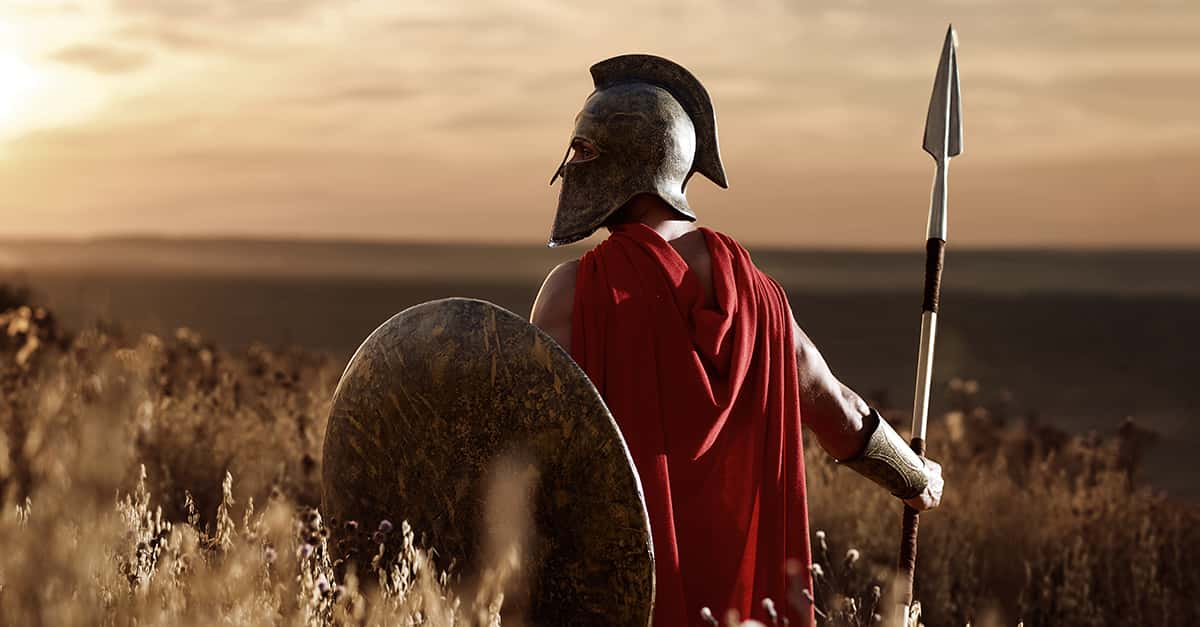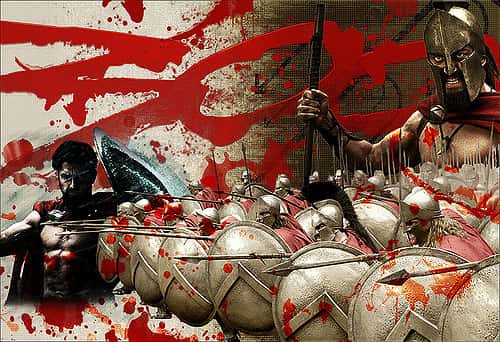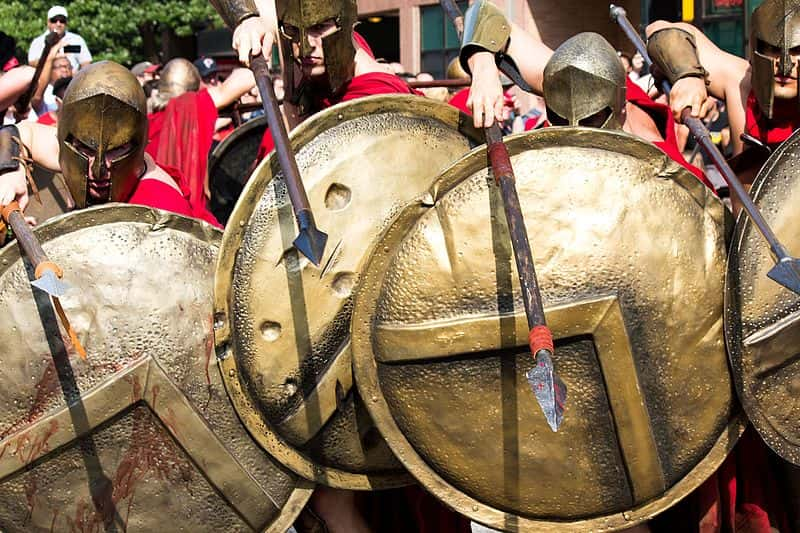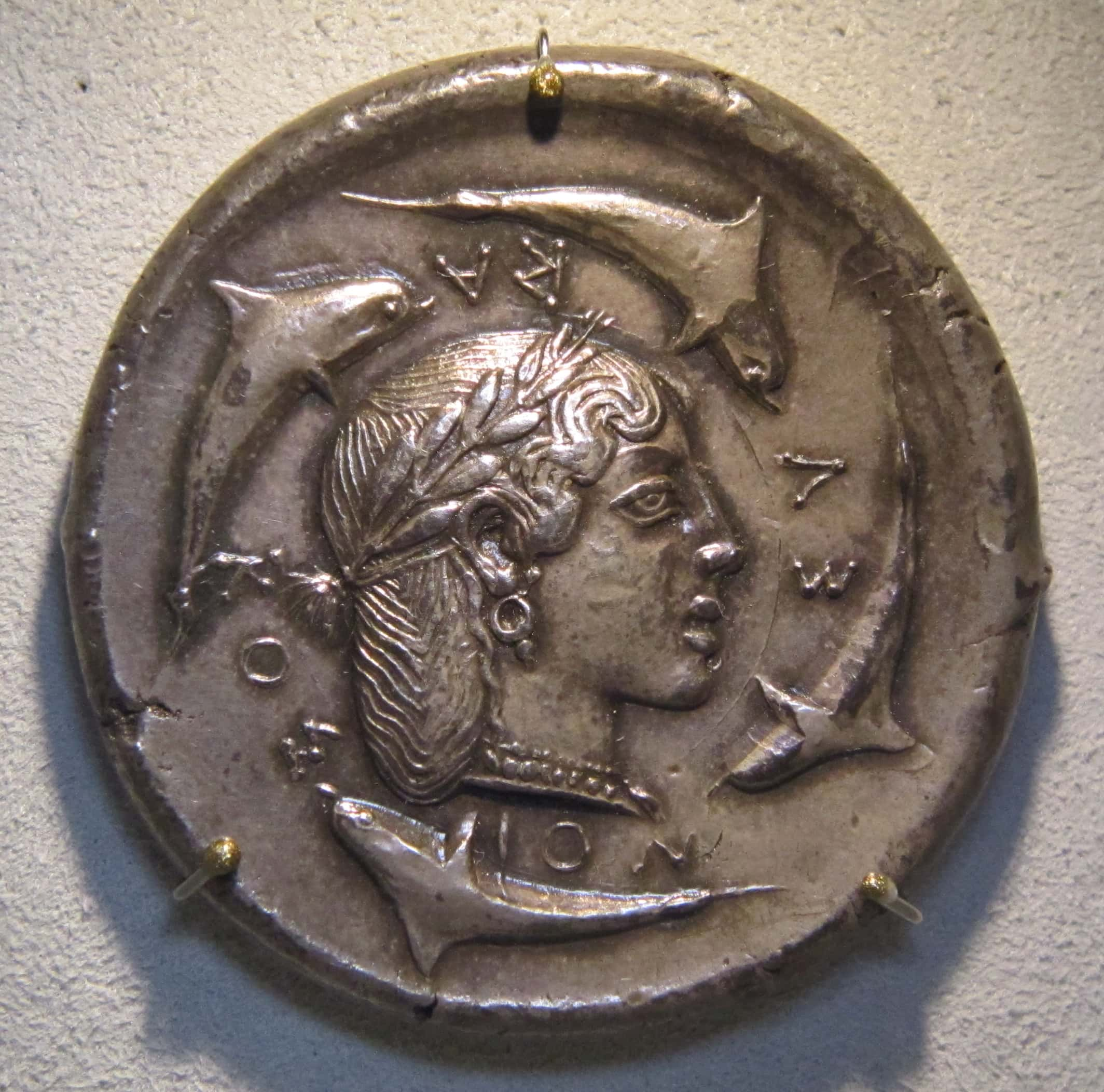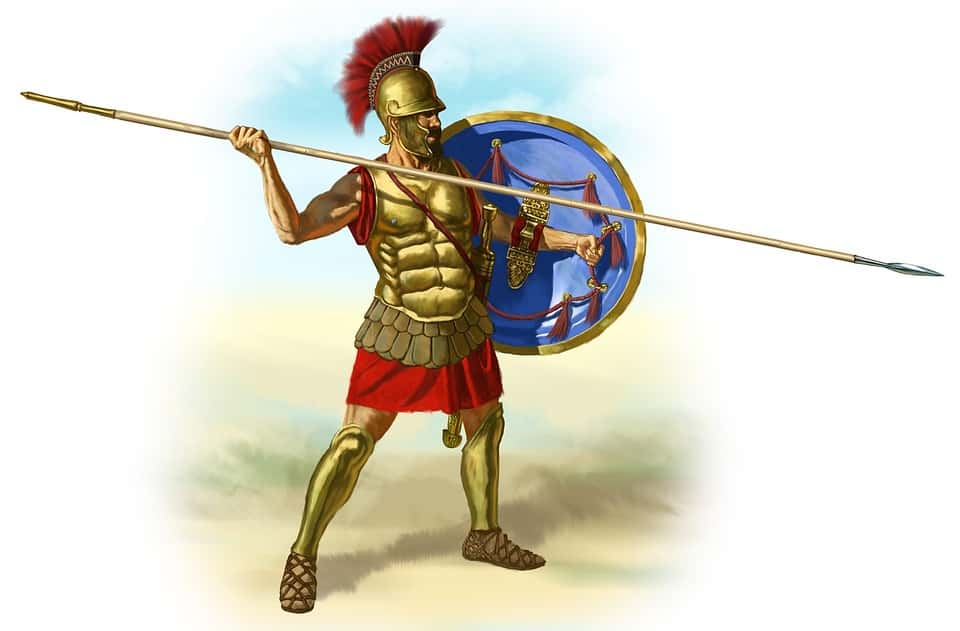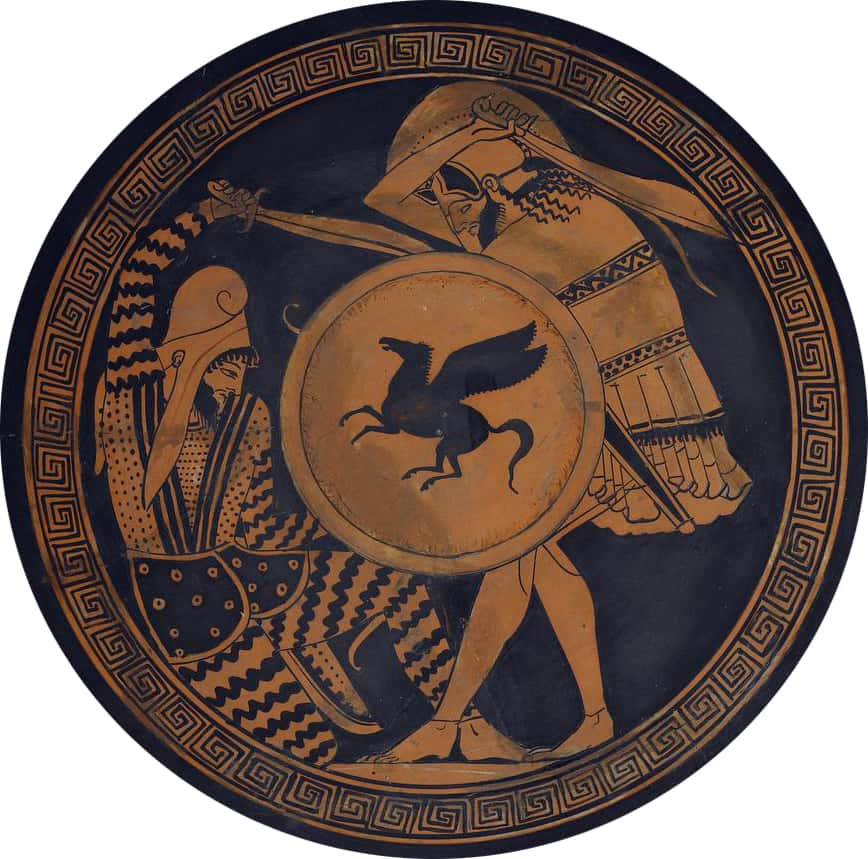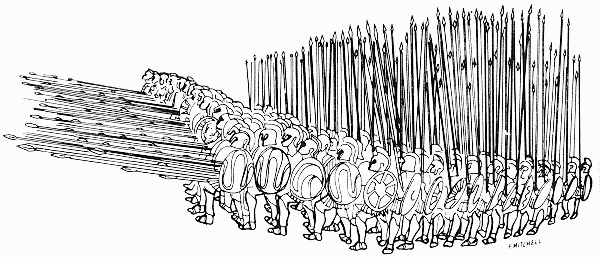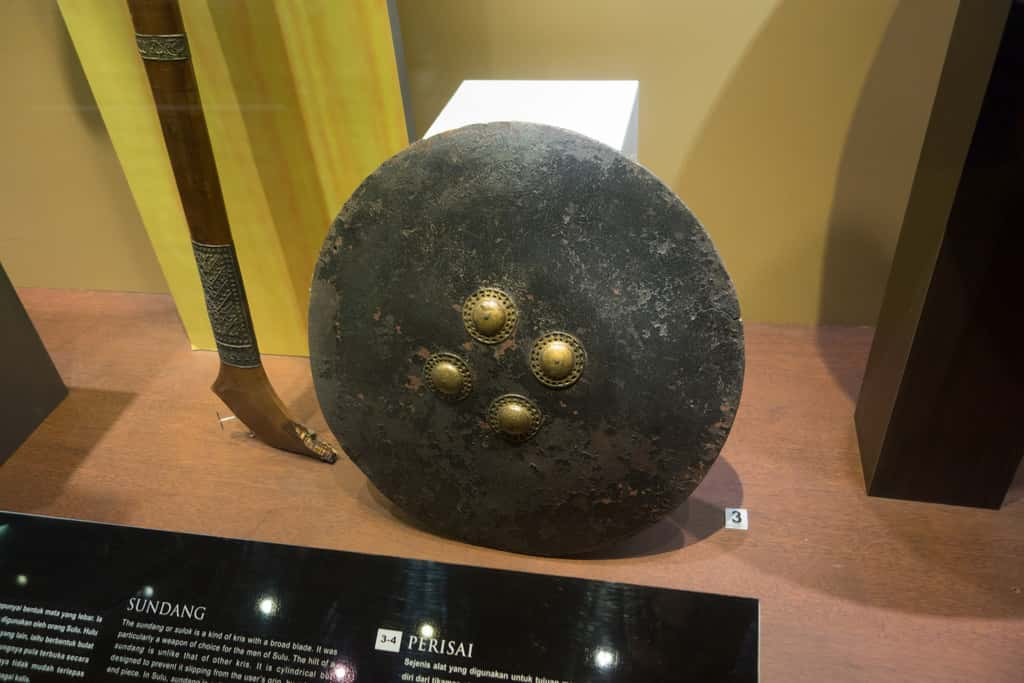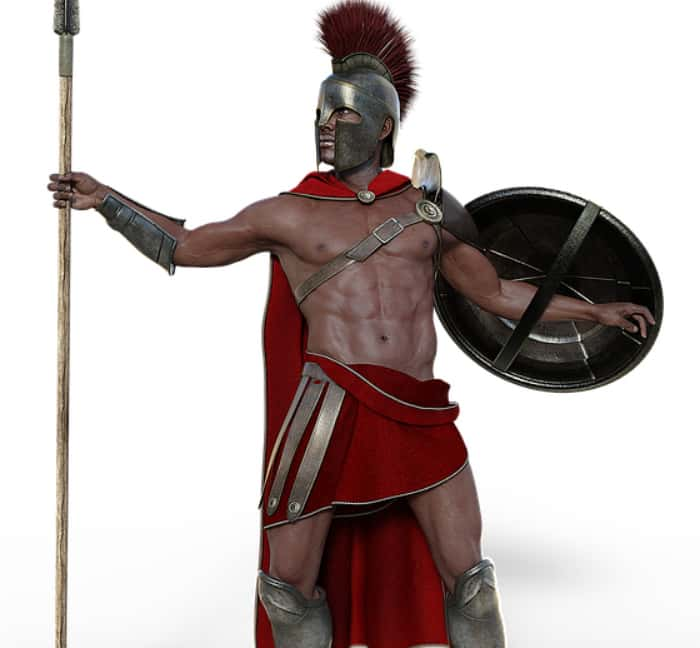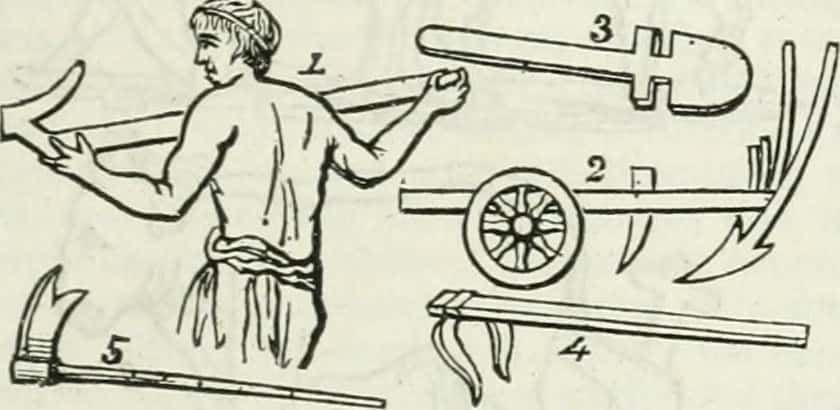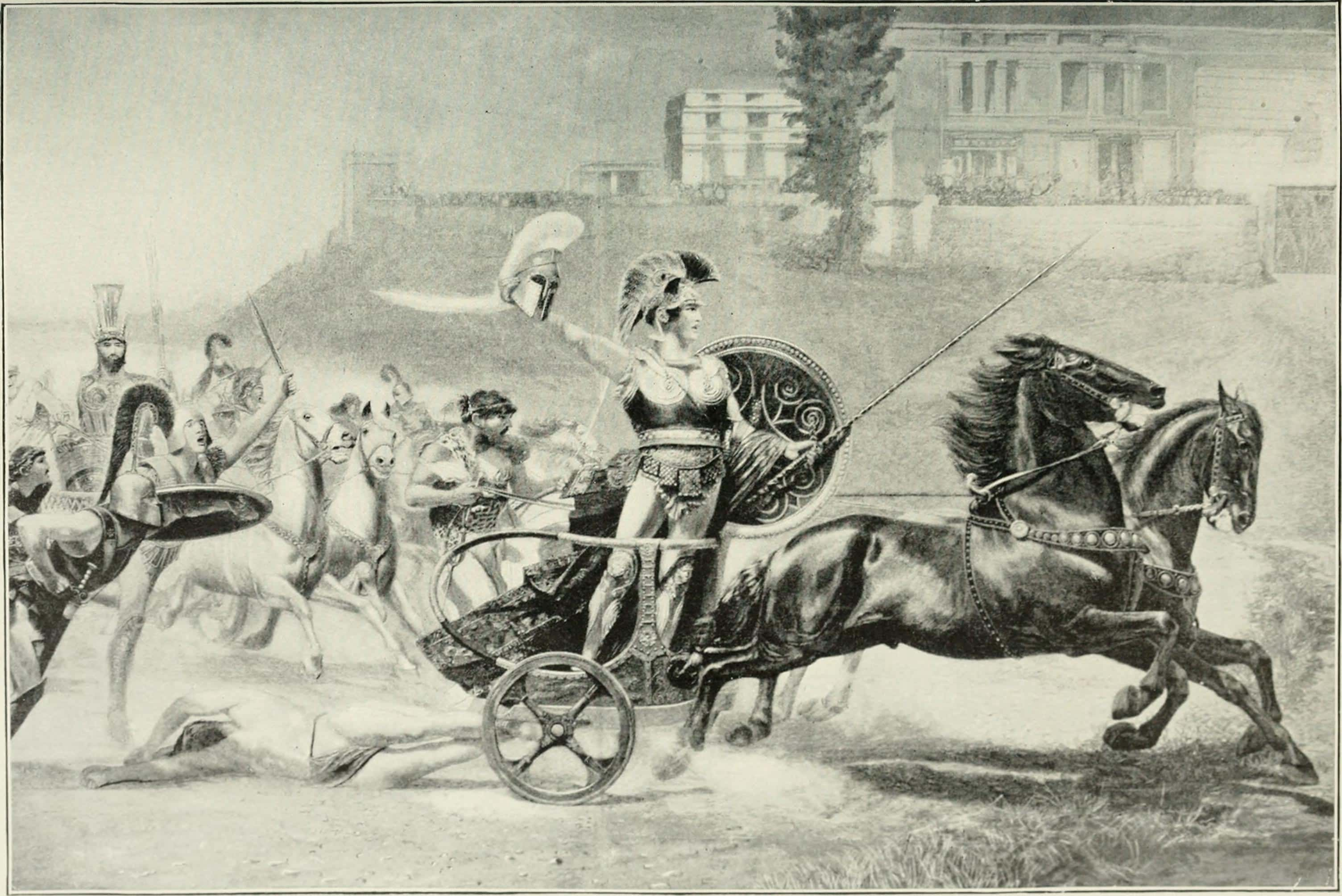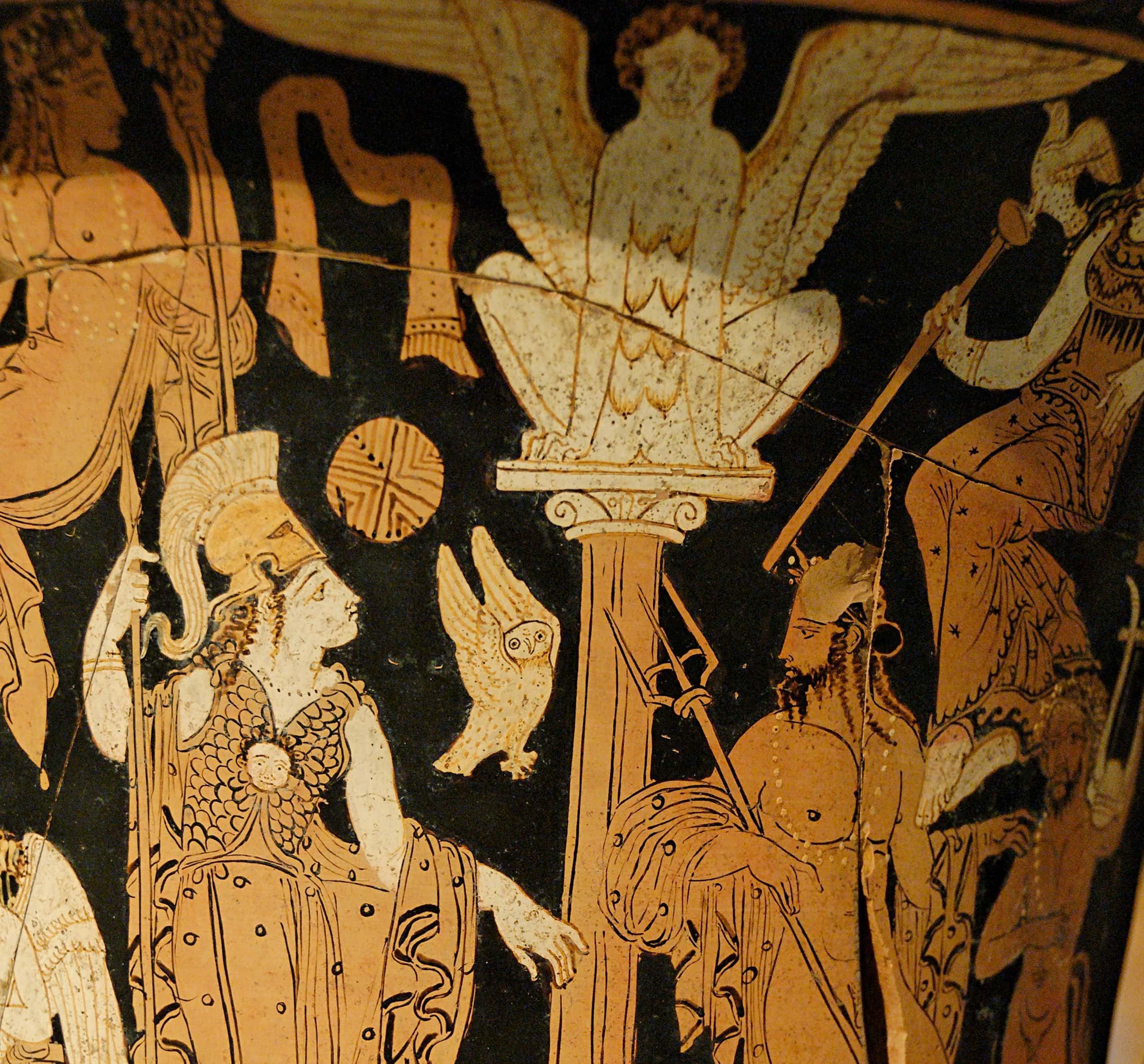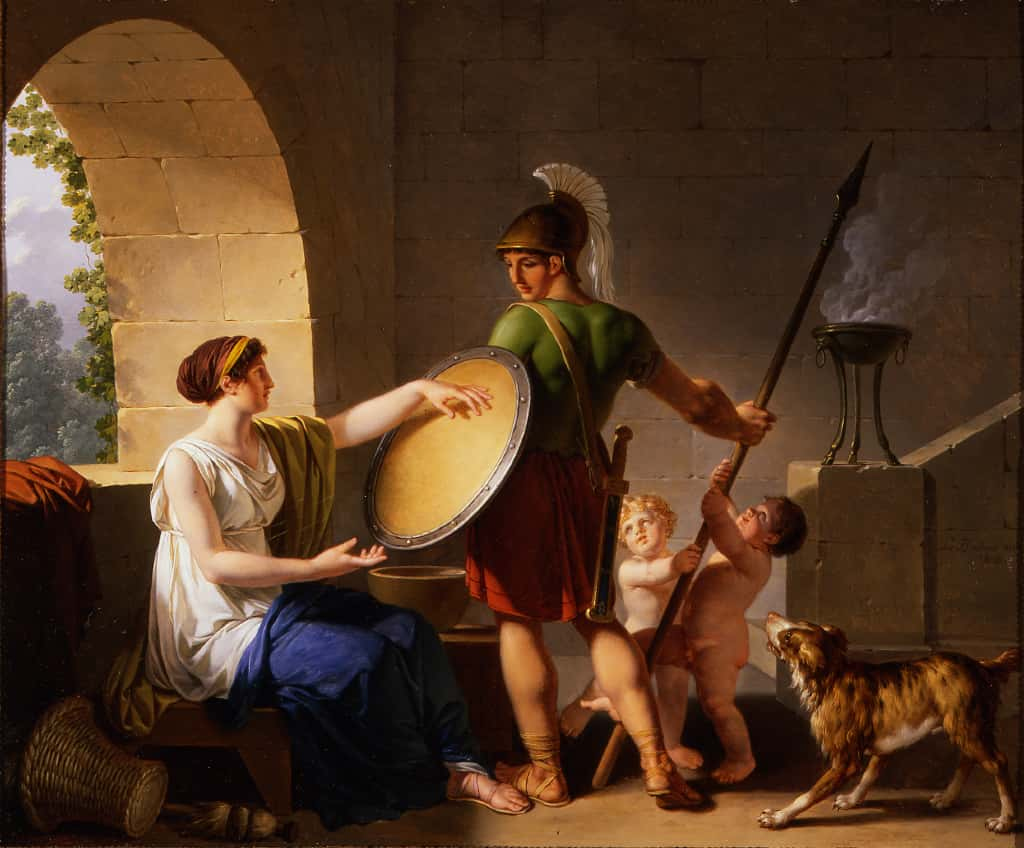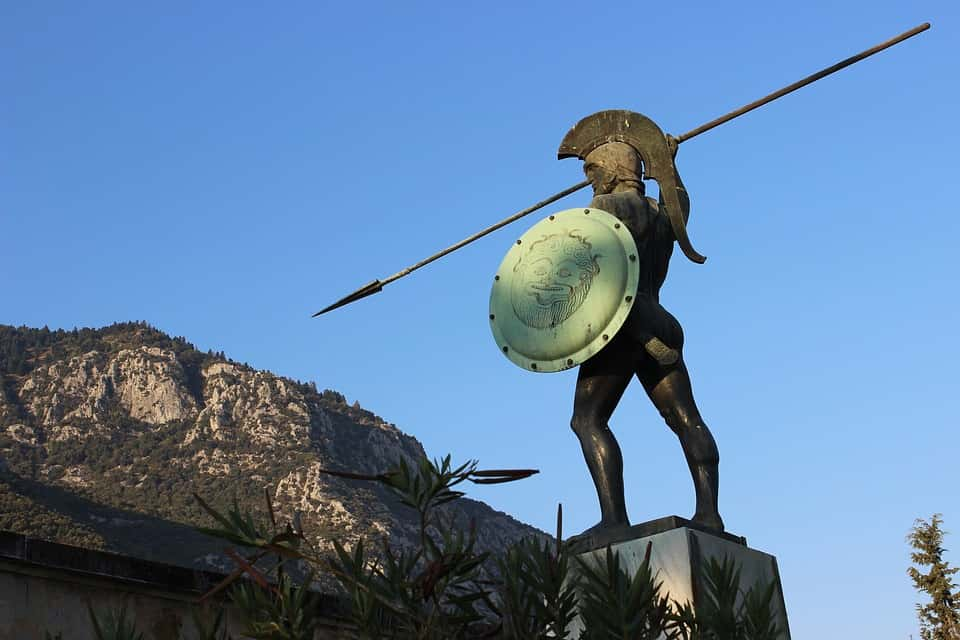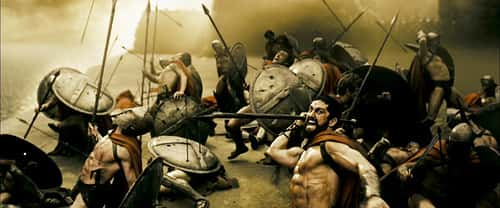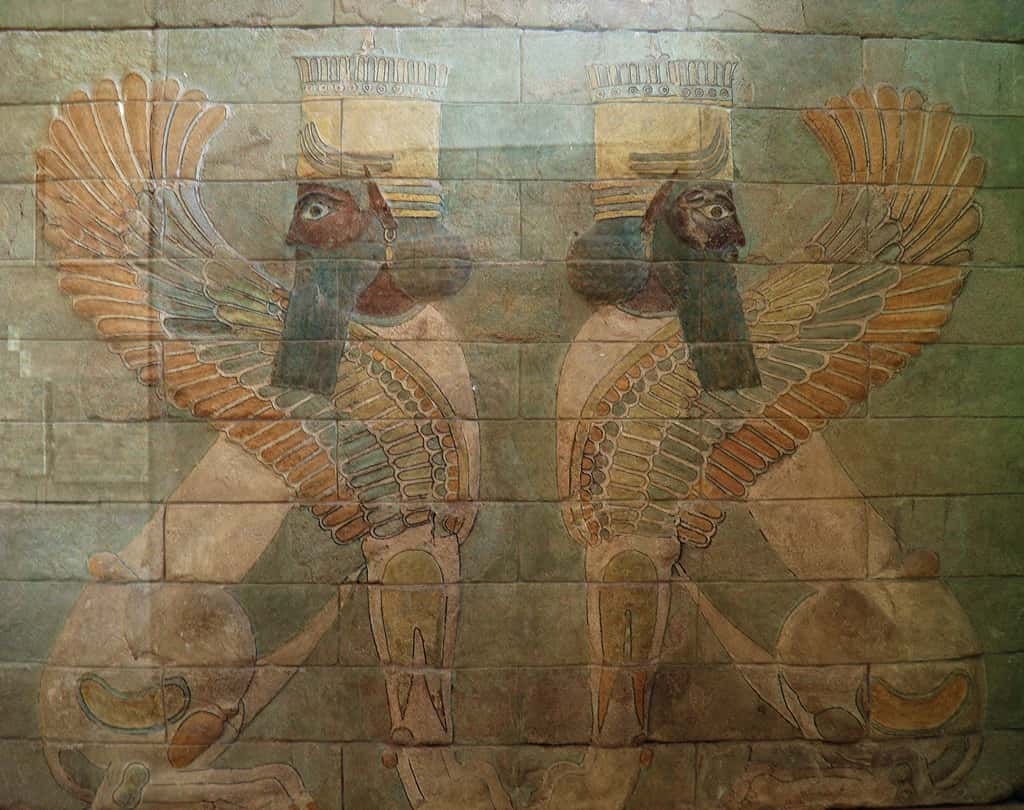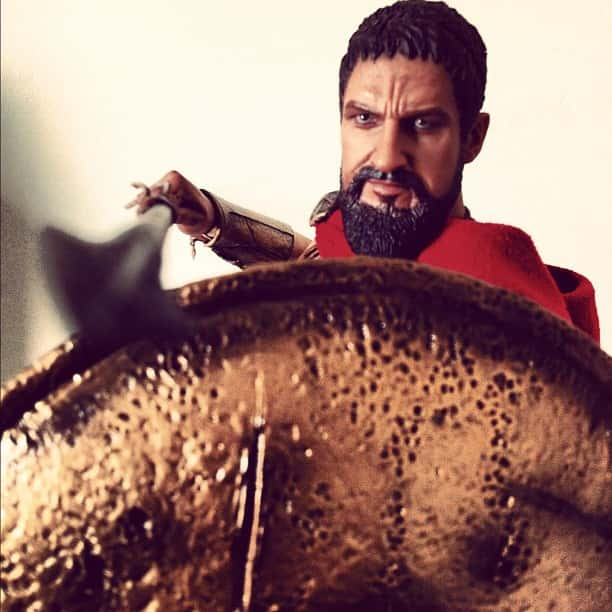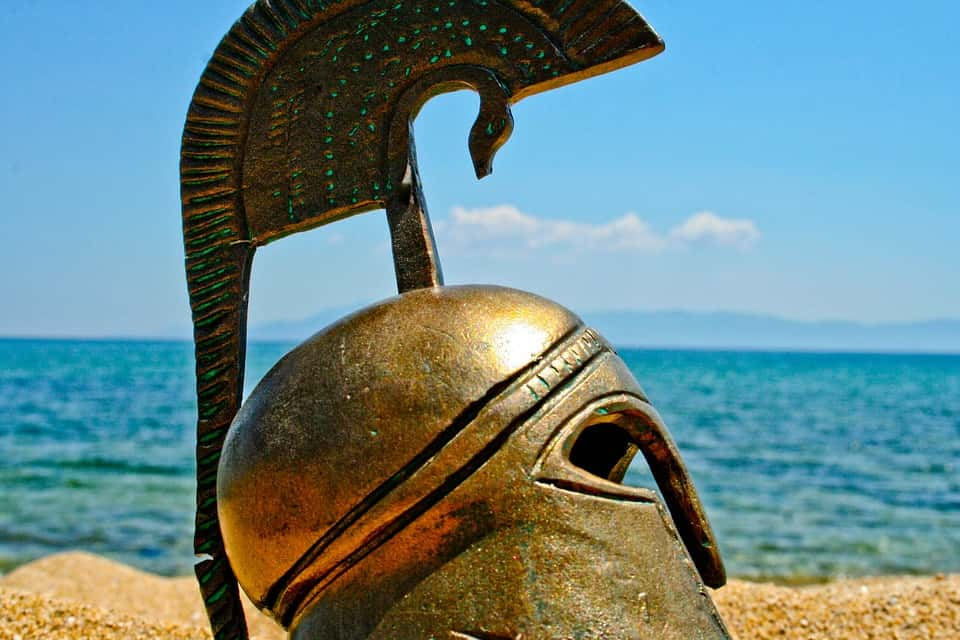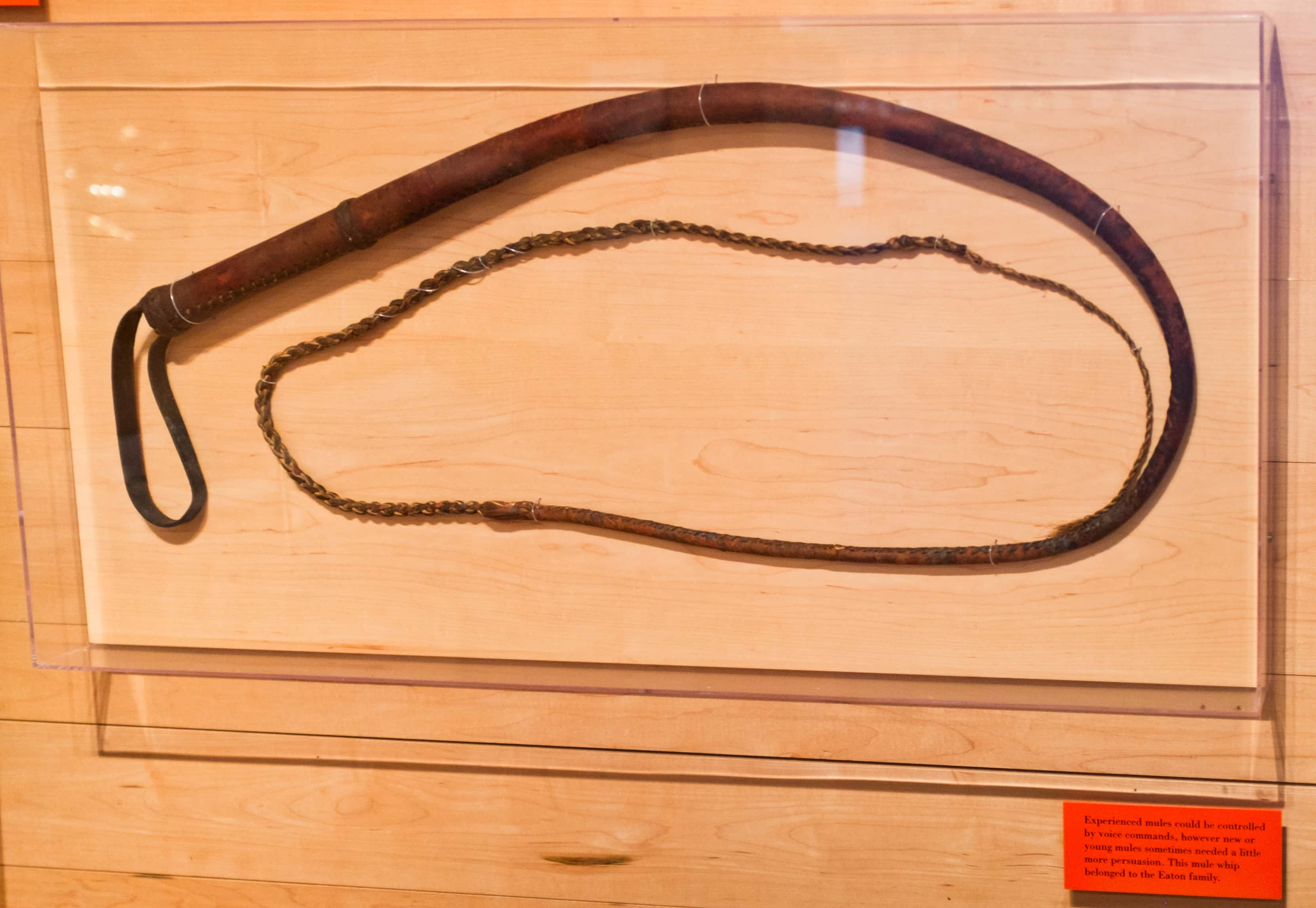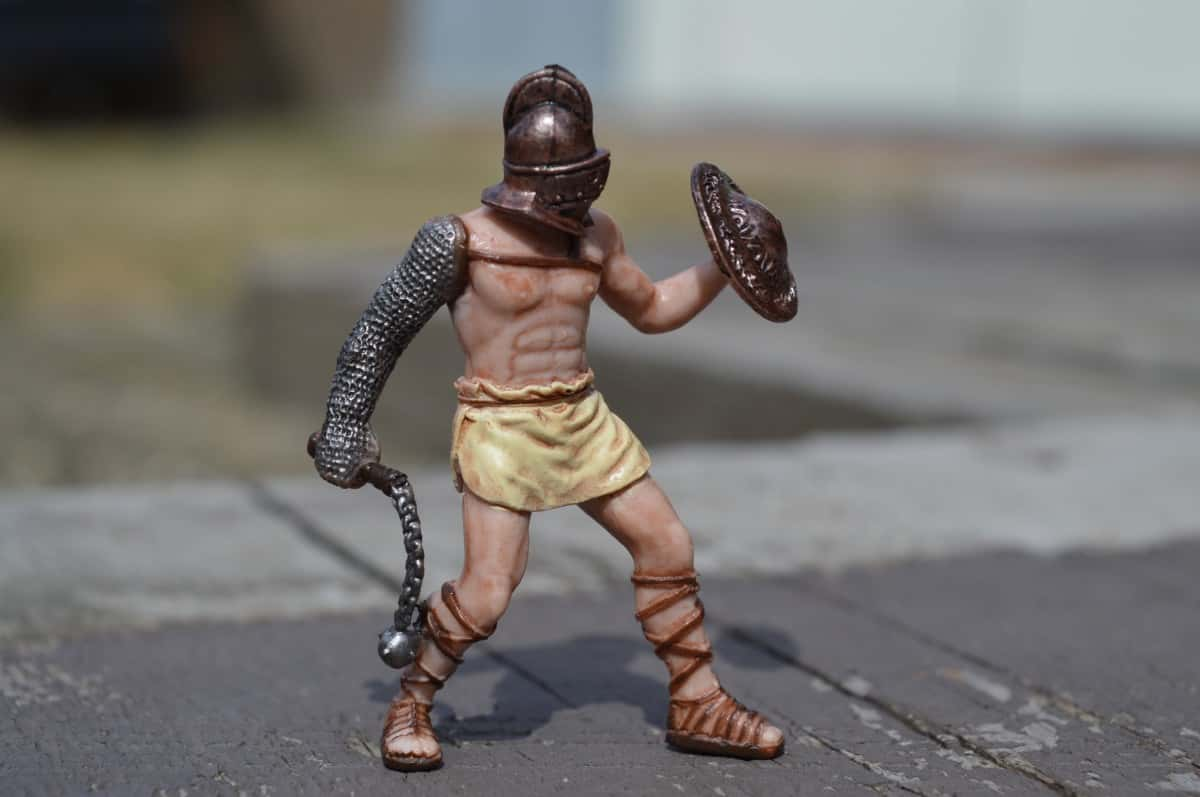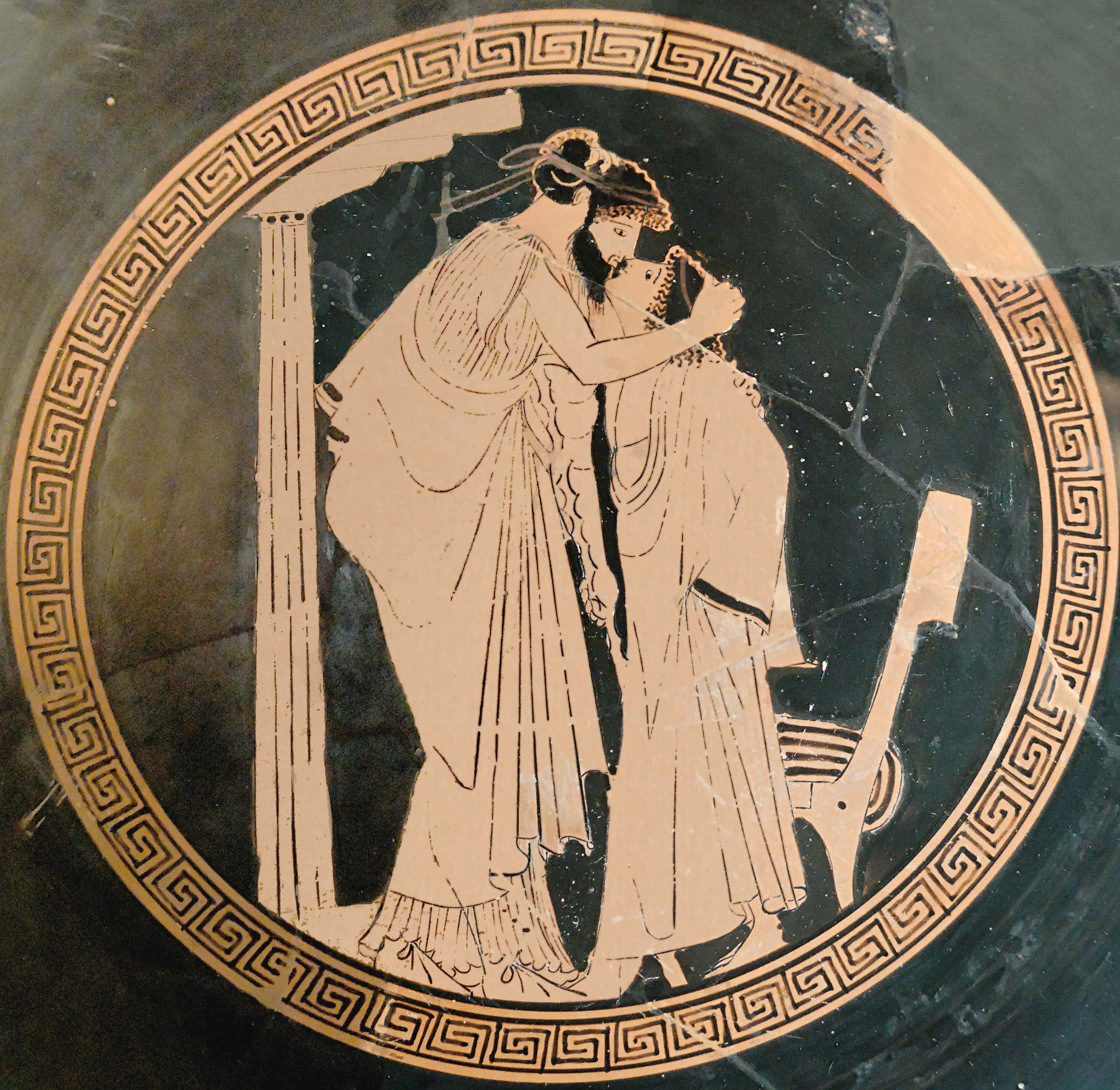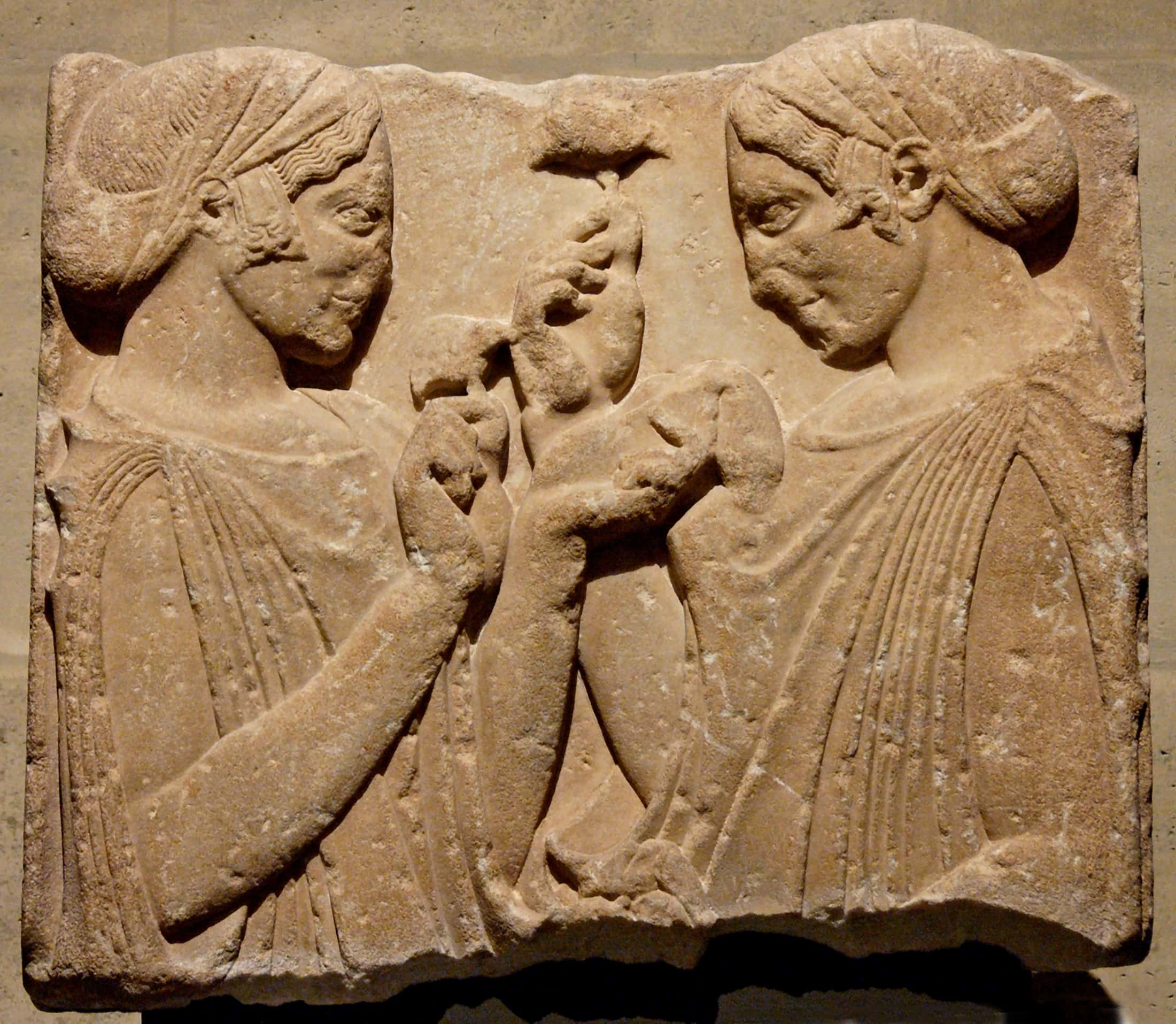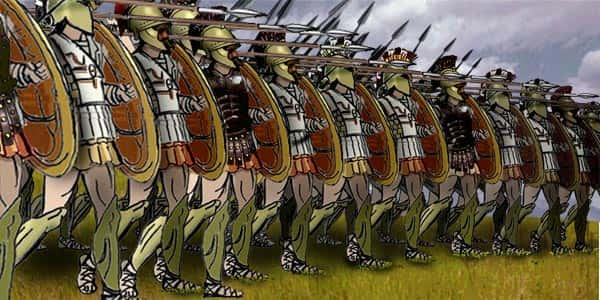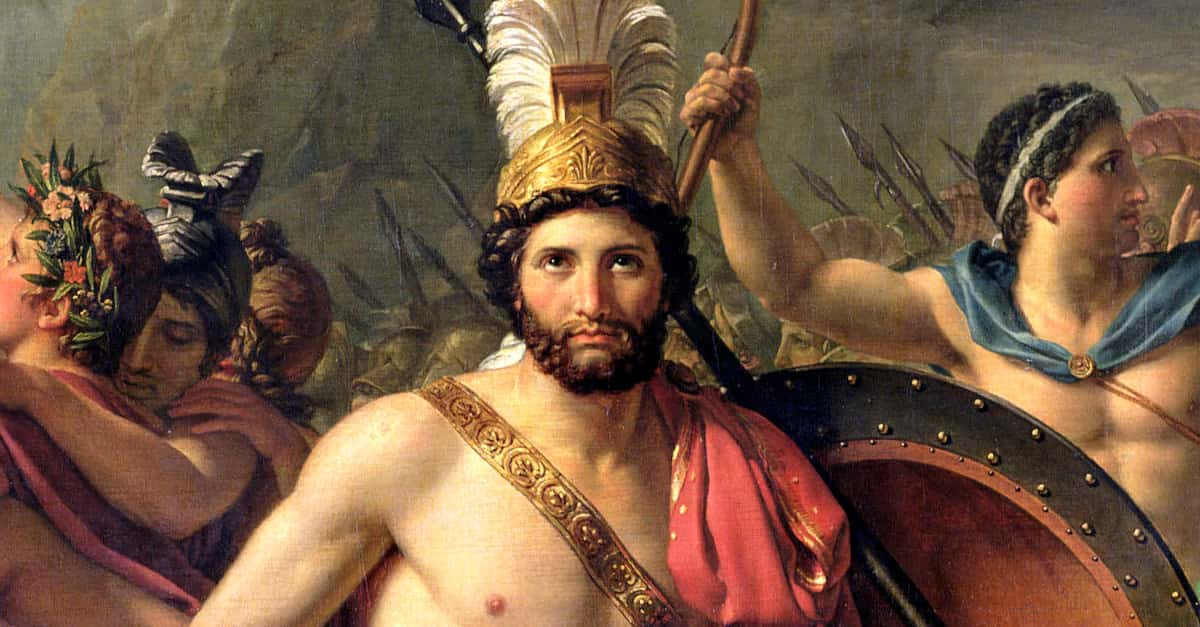"The world will know that free men stood against a tyrant, that few stood against many, and before this battle was over, even a god-king can bleed." —King Leonidas, 300; the film adaptation of the Battle of Thermopylae.
Highly disciplined and trained to be warriors from a young age, Spartans were one of the most feared military forces in the Greek world. At the height of Sparta’s power, it was commonly accepted that “one Spartan was worth several men of any other state.” Theirs is one of the most widely respected military cultures that has ever made its presence felt on Earth. Which is saying a lot, considering the human propensity for violence. But beyond what we've all seen in movies like 300, what went into creating this singularly impressive nation? Here are a few things you might not have known about these legendary warriors.
45. Birth of a Nation
The iconic Spartan army was the brainchild of a legendary lawgiver named Lycurgus, who organized their culture and brought them to prominence. Lycurgus referred to Sparta as having “a wall of men, instead of bricks.” Imagine the Great Wall of China, except instead of a stones and mortar piled up in front of you, it's thousands of absolutely ripped Spartan warriors who have been trained since birth to specialize in murder. That was Sparta's primary method of self-defense.
44. Early Enrolment
The Spartans had a ruthless reputation around the ancient world. And it says a lot that their absolute efficiency in warfare is still so widely remembered today. But a reputation like that doesn't come easily. All Spartan citizens were expected to be professional soldiers, and children were removed from their homes at the age of seven to begin training.
These children were put in the agoge system. There, they lived communally, studied fighting as well as reading and writing, and were fed, according to Xenophon, "just the right amount for them never to become sluggish through being too full, while also giving them a taste of what it is not to have enough."
43. Not Above the Law
Even though the kings of Sparta came from royal bloodlines, they were still judged as civilians and held to the same laws of the community.
Before we go forward, and start to see some of the less-tasteful things that characterized Spartan culture, let's take a moment to appreciate how forward-thinking that was. Most historical monarchs enjoyed lifestyles and powers similar to those of a Galactic Overlord. Good for the Spartans, keeping things equal.
42. Pumping Iron
Pursuit of material wealth was discouraged by Spartan law, so coins were made out of iron instead of gold or silver. This made stealing difficult, because iron is heavy. Also, good luck outrunning the Spartan you just robbed.
41. Beauty Standards
Being a little bit chubby was not an option in Sparta. Spartan warriors were expected to be strong and fit, and every 10 days, young men had to stand naked in public so their bodies could be inspected. Those who failed to meet standards of physical fitness were beaten and censured. Soldiers also had strict diets because they were focused on remaining physically fit as both a point of pride and to avoid beatings.
40. Speak No More
Spartans were rockstars even for their time, and the ancient world had a word for the obsession with the Spartan way of life: Laconism or Laconophilia, since the Spartans were also sometimes called the Lacedaemonians because of where they lived. Moreover, the word "laconic," which refers to a sharp, terse wit, comes from the Spartan economy of speech.
39. For Sparta
For a long time, Sparta fought the Greek city-states of Athens and Thebes as well as the Persian Empire for supremacy over the ancient world. But after the Peloponnesian war, Sparta curiously found themselves becoming a formidable naval power. They wasted no time conquering their rivals, even defeating the mighty Athens, to establish a Spartan hegemony by the end of the 5th century BC.
38. Runaway Baby
Cowards were not treated kindly in Sparta. They would have to give up their seats to non-cowards and often would not be able to find a woman to marry.
37. The Punishment Fits the Crime
According to Plutarch, another punishment for cowards was that they had to “go around unkempt, wearing cloaks with patches of dyed cloth, and with one side of their beard shaved.” So cowards were punished by being forced to be hipsters.


History's most fascinating stories and darkest secrets, delivered to your inbox daily.
36. Preparation Is the Key to Success
Like armies in other Greek states, the Spartan army was infantry-based, and fought using the phalanx formation. They didn’t introduce any real innovations to the formation, but their constant training and discipline just made them better at it.
35. Shields up!
Shields were of very high significance, and a soldier who lost their shield was severely punished. This was because shields weren’t seen as just there to protect the individual, but there to protect the entire army.
34. Hide Your Delicates
Although in films Spartans went into battle with bare chests, in reality they often wore full body armor because they weren’t movie stars who wanted to show off their abs. That said, Gerard Butler did have exceptional abs. The armor they wore was the same hoplite equipment used by their Greek neighbors. The only difference was the crimson tunic and cloak.
33. Stupid Hippies
Spartans were also famed for having long hair. To the Spartans, long hair was the symbol of a free man. Of course, to other Greeks, by the 5th century BC, long hair meant having pro-Spartan sympathies. Personally, I would have grown it out. Given the choice of which Greeks to impress with my grooming habits, I'm going to go with the murderous war machines. Just saying.
32. Finding Dory…in Your Face
The Spartans' main weapon was the dory spear, which was seven to nine feet in length with a wooden handle, an iron spearhead, and a bronze butt-spike for counterbalance. You may have noticed this tidbit in 300. The bronze butt-spike, also known as a “lizard-killer,” was there to both allow the Spartan to stand up the spear up and also use it as a secondary weapon if his spear broke. Additionally, it could be used to vertically stab their fallen enemies as they marched past them.
31. Death First!
Losing was simply not an option for the average Spartan warrior. Theirs was a culture that revered success on the battlefield, to an almost unbelievable degree. Similar to samurai, Spartans were expected to kill themselves rather than surrender or face utter disgrace.
30. Mass Suicide Wasn’t an Option?
The Spartans actually did surrender in the Battle of Pylos during a particularly disastrous fight where many Spartans were taken hostage by the Athenians. This event shook the Greek world, as it was commonly believed that Spartans would never surrender.
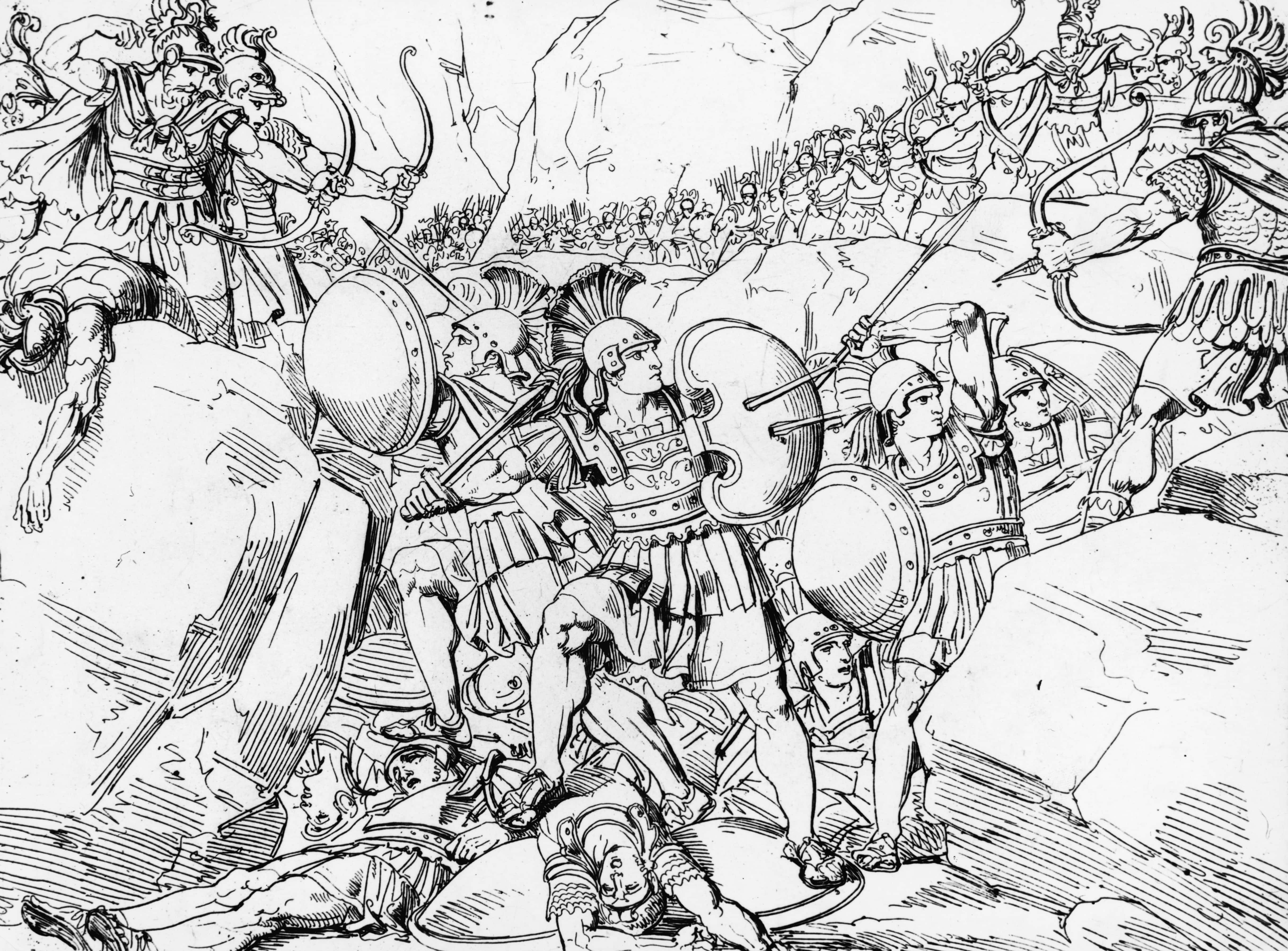
29. If at First You Don’t Succeed
If a married Spartan woman was childless, the government could order her to do something horrific. They could force her to see if another man could do a better job at impregnating her. Women had little choice in the matter, as Spartan law was strict about encouraging new children since they had to keep replenishing the population that they kept sending to die in wars. Likewise, another ruthless law allowed a childless man to request another man's wife if she had previously borne strong children.
28. A Glass a Day
Wine was popular in ancient Sparta, liked but never to be over-indulged in. The Spartans would drink wine with or after most meals, although they typically watered the wine down. Children were warned to stay sober and to think about the dangers of alcohol. In fact, helots would be forced to get drunk to demonstrate alcohol’s negative effects.
27. A Slave by Any Other Name
Spartans had slaves known as “helots,” who acted as farmers, servants, and generally performed any other duty that would take Spartans away from their military campaigning. Helots were usually conquered Greeks, and with each new conquest, Spartans would gain more helots.
26. But Who Polices the Police?
The Spartans had a secret police known as the Krypteia who were responsible for keeping helots in check. They would kill any helot found in the countryside during the night and any helots who looked too strong and fit during the day. Perfect for the helot who likes to go to bed early and hates exercise.
25. Trust Issues
Spartans even had locks on their doors because they didn’t really trust the helots, which is weird, because if you can’t trust a people you’ve conquered and would murder for sport, then who can you trust?
24. Classy
While helots were primarily responsible for agriculture, lower class peoples called Perioikoi (who weren’t soldiers or full citizens), took care of manufacturing, laboring, and other trade jobs. In fact, full Spartan citizens were forbidden to participate in trade or menial labor.
23. Big Government
The ephors were a branch of Spartan government with no Greek equivalent. Elected from their population of male citizens, the role of the ephor was to balance the role of the king. So if the king were president, the ephors were The Senate, The House, and the Supreme Court all rolled into one.
22. Gender Roles
Women in Sparta had much more freedom compared to Greece. Women would undergo physical training alongside the men, although in their case, it was often to prepare for the war that is childbirth.
21. Getting a Head
The only Spartan citizens who were given headstones after burial were soldiers who died in combat and women who died in childbirth (or if they died doing a divine duty).
20. A Healthy Marriage
Spartan men could marry after age 20, but were required to live in military housing until the age of 30, so anybody who got married had to live apart from their wives for a few years, which honestly doesn’t sound that bad…
19. Quality Control
You don't keep your population physically flawless without being disgustingly ruthless. It's a simple fact: over time, you're going to have a few kids who are born a little different. Spartans didn't stand for that. Infants were given thorough inspections, and if any defects were found, they were left to die.
18. Victory?
The events of the famous Battle of Thermopylae were depicted in the film 300. The battle came to define the struggles of the Greek city-states in their wars against the vast Persian Empire and their king, Xerxes. Even though it wasn’t a victory for the Greeks, it was used to hold up the heroism, endurance, and sacrifice of the 300 Spartans who fell holding off hundreds of thousands of Persians.
17. Accurate, But Also Inaccurate
In 300, one of the iconic scenes of the film was the scene where Persian messengers demands a gift of “earth and water.” In response, Leonidas and his men cast the messengers into a well. According to Herodotus, this did actually happen, but not with Leonidas. This scene occurred prior to the invasion of Greece by Xerxes’ father, Darius I—long before Leonidas was king of Sparta.
16. Two Kings to Rule Them All
Sparta had two kings from two different ruling dynasties. Their explanation was that the hero and demi-god Hercules (from whom legend claimed all Spartan kings descended) sired two twin sons. The pair then formed the bloodline for the two royal houses, Agiad and Eurypontid.
15. Chore Wheel
The duties of the kings were limited, but one would travel with the soldiers into battle while the other one would rule from home. I wonder if they decided which was which with a spirited game of “Rock, Paper, Scissors.” During the Persian war, the two Spartan kings were Leonidas and Leotychidas.
Contrary to what 300 might have told you, King Leonidas wasn’t a man in his prime with a Scottish accent. According to historical sources, Leonidas was said to have been an aging man at the Battle of Thermopylae, in his late 50s and maybe even as old as 60! To be honest, the fact that he was so old and still fighting Persians to the death makes his story even more impressive than if he was a young man—but maybe a little harder to cast.
14. Love or Banishment
According to some sources, relationships between adult males and adolescent boys were common, and were often formed between mentors and mentees. However, if a relationship was purely physical, both men could be banished. Which is an odd stance to take, frankly.
13. Cool Whip
Spartan boys were flogged with whips for an entire day, and would compete with each other to see who was capable of resisting the highest number of lashes.
12. Oops, I Did It Again
Although these flogging sessions were meant to be harmless (relatively speaking), sometimes they did result in accidental death. Which is hardly surprising. Anyone who's experienced even a mild/accidental belt snap on the skin can testify that it is not a fun time. And that isn't even comparable to what these people were going through.
11. Survivor
You might think you had a tough childhood. And I won't presume here: you could have had a really, really difficult time. But I bet you it wasn't prospective-Spartan-warrior tough. By the age of 12, Spartan boys were expected to be able to survive in the wild with nothing. Like, no Internet or anything.
10. Survival of the Sneakiest
Although the boys were encouraged to steal to stay alive, they would be beaten if caught. Which feels a bit confusing and unfair. You've got all the adults in your life repeatedly assuring you that taking a little bit of food is not just encouraged, but absolutely essential. But then you try it out, and suddenly you've got someone pulling out the spanking-paddle. We'll say it again: being a Spartan youth was absolutely not a picnic.
9. Fight Puppets, Fight!
Children were also encouraged to fight at a young age and many times, older men and teachers would deliberately create conflicts between the boys to promote fighting, not unlike a reality TV show. Except in this reality show, the fights were very, very real. Incapacitating injuries were not exactly rare, and deaths happened.
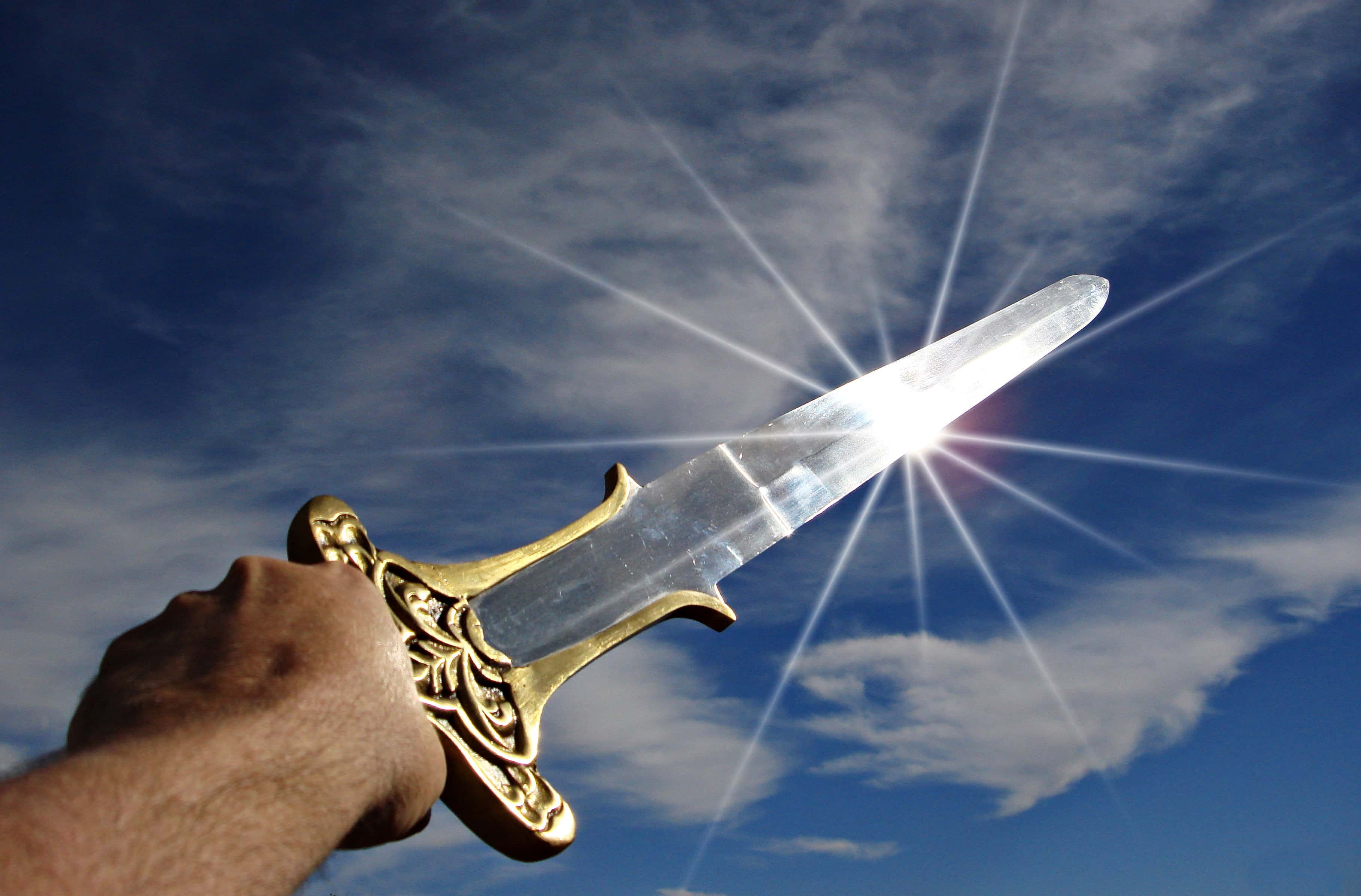 Good Free Photos
Good Free Photos
8. But Don’t Forget to Learn
Children were also coached on reading and writing, and they had to learn battle songs that were sung on Spartan military campaigns. They were also encouraged to compete against each other in various sports (much like in Hogwarts).
7. Justice Is Blind
During the famous last stand against the Persians in Thermopylae, a Spartan named Aristodemus suffered from a disease of the eyes and was too ill to fight. When he returned to Sparta, he was branded a coward. Later, he fought at the Battle of Plataea and shed the brand of coward…by dying horrifically.
 shutterstock
shutterstock
6. Brevity Is the Soul of Sparta
King Philip II of Macedon, Alexander the Great's father, once campaigned against the Greek city-states. Having conquered most of southern Greece, he sent a message to Sparta, which read, “You are advised to submit without further delay, for if I bring my army into your land, I will destroy your farms, slay your people, and raze your city.” The Spartans, in characteristically terse fashion, replied with a single word: “If.” Suffice it to say, Philip did not attack Sparta.
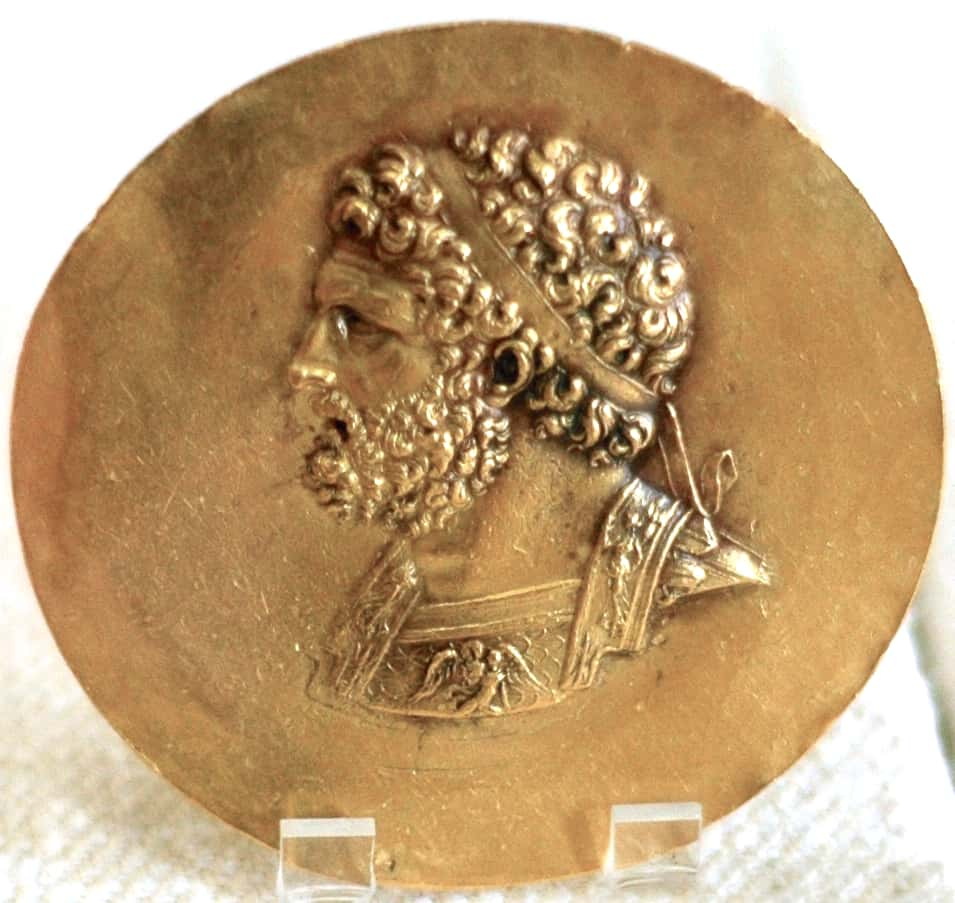 Wikimedia Commons
Wikimedia Commons
5. My Handsome Wife
On their wedding day, Spartan women shaved their heads and dressed in men’s clothes and sandals. Then prospective brides laid alone in the dark on a pallet, waiting for their grooms to come and steal them away in the night. The groom then snuck into the room and consummated the marriage. Done. Married. Some historians believe these brides dressed like men and lay in darkened rooms because the Spartan warriors were so unused to females that they needed to be eased into the way a woman actually looked.
4. Beauty Is But a Light Switch Away
Because of the nature of these consummations, many Spartans became fathers before ever seeing their wives in daylight. One can only imagine there were a whole host of awkward morning-after conversations.
3. Inspired
King Nabis of Sparta used an iron maiden-like device that was made out of a mold of his wife. Its purpose was to force obedience upon those unwilling to take his orders. A disobedient underling would be placed in the device, and the doors slowly shut, allowing the metal spikes to pierce their skin. At that point, most suddenly had a change of heart about whether or not they wanted to listen to commands. But for those who waited too long... death was inevitable.
2. You Go, Gorgo
If you thought that the Spartan King Leonidas was fierce, you should get a load of his wife, Queen Gorgo. Again, Spartan women enjoyed a great deal of freedom and education in Spartan culture, and Gorgo took full advantage of this. She often gave advice to her male relatives, and even once helped the Spartan army decode a secret message. When a foreign woman once asked Gorgo why Spartan women were the only ones who could rule men, Gorgo replied quickly, "Because we are the only women who are mothers of men."
1. Glory Days
The Spartan supremacy began to wane with the Battle of Leuctra, which was the first instance a full-strength Spartan army lost a land battle. The Spartan decline was also hastened by the helots, who began to outnumber full-blooded Spartans and, none too happy with the way their masters had treated them, started to revolt. Even so, Sparta held on for two more centuries, but never achieved the same glory they once had. Today, however, their fierceness lives on.

